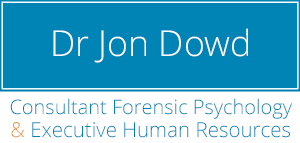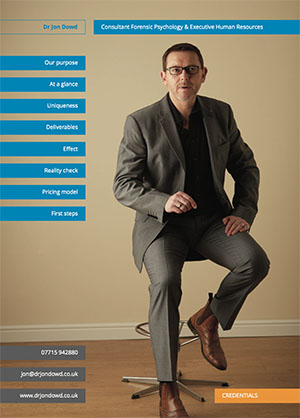The mistake is yours to make
Wednesday, October 19, 2016

Ten years later, he’s accused of giving advice relating to how to get round FA rules on overseas transfers and his apparent desire to seek further financial gain as a result of his newly acquired, let’s face it – already very well paid position as England Manager, has been subject to scrutiny in terms of his financial morals.
The FA might say… ”There were no issues” raised during due diligence… “If only we’d known!” Or “Well, we couldn’t see that coming, could we!”
Well, yes… we perhaps could have… so they could have.
Patterns of behaviour demonstrated over a number of years can be associated with identifiable psychological profiles that Forensic experts are able to uncover and the offer risk-based assessment upon. There is the very real potential that expert Forensic assessment would have offered the FA insight into the potential for concerning behaviour in the future.
So, yes… the FA could have seen it coming.
Did they ignore the opportunity to check deeper?
Did they choose to forget the possible risks?
Or weren’t they aware of the opportunity for more effective due diligence testing?
Whatever the truth, the mistake was theirs to make and it has been a costly one for them in more than just financial terms.
The mistake is yours to make
Most mistakes have warning signs, because most mistakes are made by people and people are fallible.
When we make morally sound decisions, we behave in a particular way because we’re comfortable, confident and ‘safe’.
When we make morally unsound decisions, we send out different signals… which can be read. The bottom line is that we’re not very good at hiding moral ambiguity.
We can consciously hide our true self, but those experts who know, can scientifically interpret personal responses and behaviour in order to expose the potential for risky decisions. We are not talking about so called ‘lie detector’ machines on TV chat shows - this is science - accepted as evidence in every Court in the land.
We’re basically victims of our own desire to create behavioural patterns that are comforting to us, these can be negative as well as positive, so will ultimately give us away.
In the end, we are who we are.
If you want to spot someone’s tell-tale signs of moral ambiguity, you have to know how to look and listen.
When interviewing for an important, high-risk position, with plenty to lose (like being England Manager!) you need to use an interviewer who knows how to ‘see’ and knows how to ‘listen’.
Anything less could end up being a mistake waiting to happen.
Not every England Manager will let you down in any way other than losing the odd game… but when it does happen, the repercussions can go on for many years.








0 comments